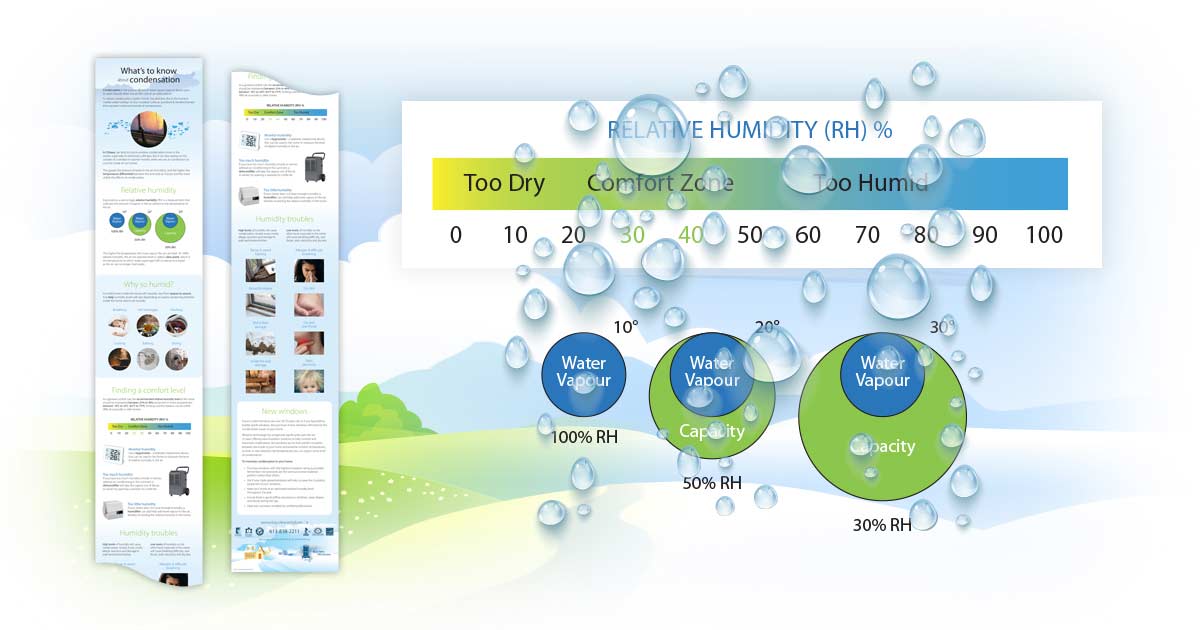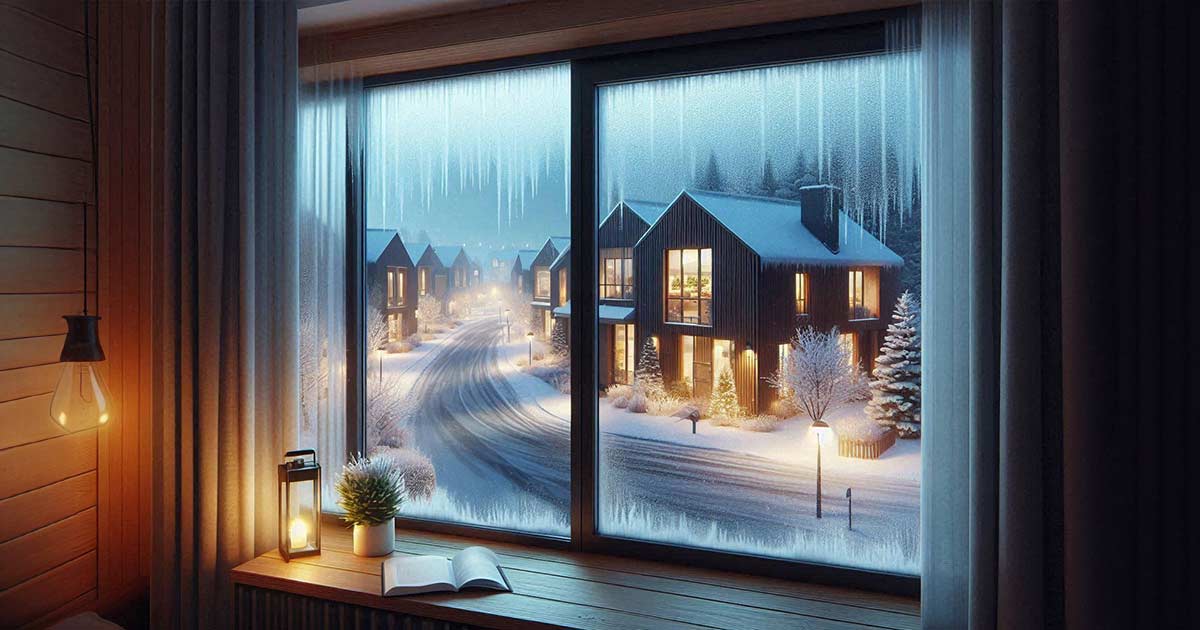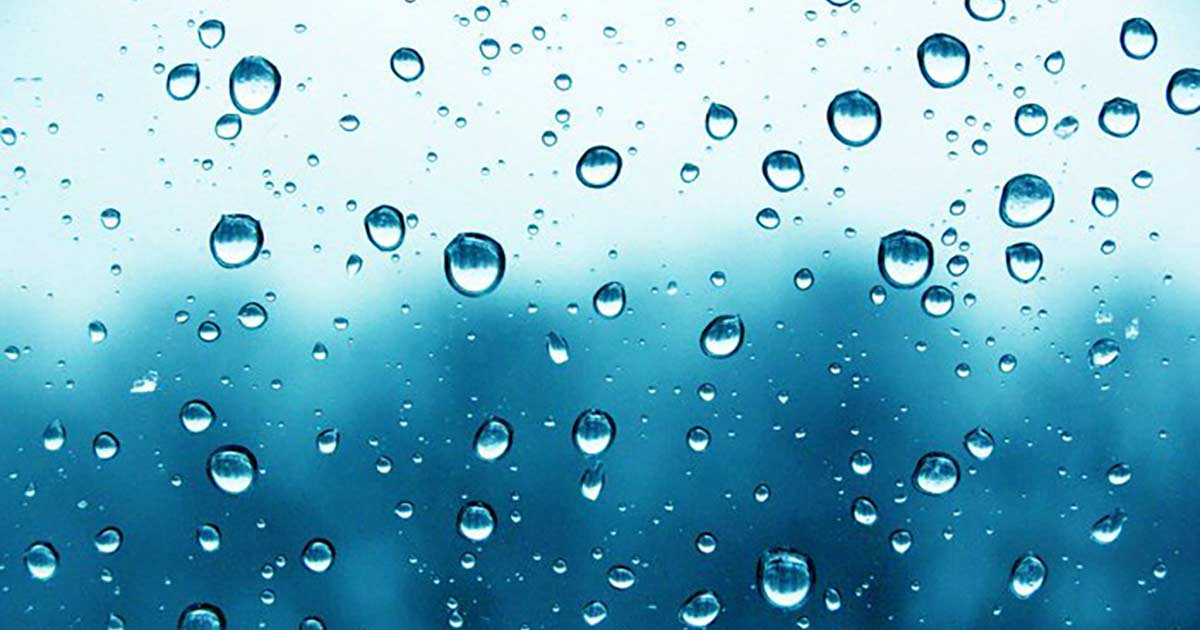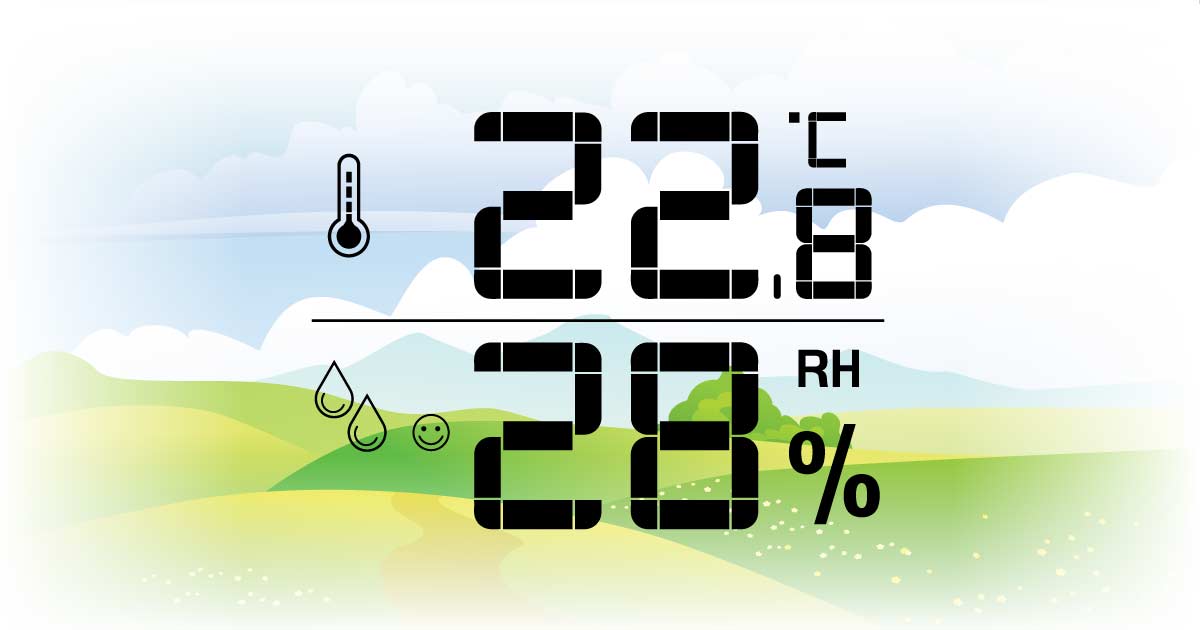Insights > Article > Posted: 2025-Mar-20, Updated: 2025-Mar-31
Condensation
Why Take it Seriously?

Ice Buildup on Patio Door Due to Condensation - Hardwood Floor Damage
Imagine this: a small patch of condensation on your patio door grows over time, eventually leading to ice buildup. The excess moisture seeps into your hardwood floors, causing warping and damage that require expensive repairs.
Mould and Mildew Growth
Excessive condensation creates a moist environment, perfect for mould and mildew growth. This not only damages window frames and sills but also leads to health problems like allergies, asthma, and other respiratory issues.
Structural Damage
Unchecked condensation can cause rotting of window frames, sills, and even surrounding walls, weakening your home's structural integrity and leading to costly repairs.
Painted Surfaces
Moisture accumulation can cause paint to peel, bubble, or flake. In severe cases, paint may fall off in large chunks, requiring repainting and repairs.
Drywall Damage
Condensation can penetrate drywall, causing staining, warping, or complete deterioration over time.
Water Damage
If left untreated, condensation can lead to water damage in walls and ceilings, affecting drywall, insulation, and even electrical systems.
Energy Loss
Excessive condensation reduces window insulation, leading to higher energy bills as your heating and cooling system works harder to maintain a consistent temperature.
Decreased Indoor Air Quality
Poor indoor air quality results from excessive condensation, promoting the growth of bacteria and other microorganisms that cause respiratory problems.
Window Damage
Condensation between panes of double- or triple-glazed windows indicates a broken seal, leading to energy loss and reduced insulation. Repair or replacement may be necessary.
Managing Humidity Levels
High indoor humidity contributes to window condensation. Reduce humidity by using exhaust fans in bathrooms and kitchens, fixing leaks, and using a dehumidifier.
Temperature Differences
Temperature differences between the inside and outside of your home cause window condensation. Proper ventilation and insulation can help reduce these differences and prevent condensation.
Preventative Measures
Regularly maintain your windows, ensure proper installation, and use condensation control products like humidity monitors and dehumidifiers to prevent condensation issues.
By addressing window condensation promptly and preventing it from recurring, you can protect your home and ensure a healthy living environment for your family.
Long-Term Savings
Addressing condensation may seem like an upfront expense, but it prevents more significant structural and health-related costs in the future. The long-term savings are substantial.
Professional Assessment
Seek professional assessments to understand the extent of your window condensation issues and potential solutions, whether you opt for new windows or not.
Take Action Now
Don't let condensation damage your home. Take action today to protect your investment and ensure a healthy living environment.
Related articles
Need more information?
There are ways of lowering humidity levels in your home and potentially heading off problems associated with condensation, but it can be difficult with the volatile outdoor temperatures that are at the root of the problem. Would new windows make a difference? Maybe. Give us a call for a free consultation. We’ll assess the situation for you and provide advice and options.
Fighting the Climate
Battling the Sun
INFOGRAPHIC
Understanding Causes
Why Take it Seriously?
How to Prevent
Year-round Semblance
New Window Fix?
Try Our Dewpoint Calculator
Humidity/Temp. Guidelines






